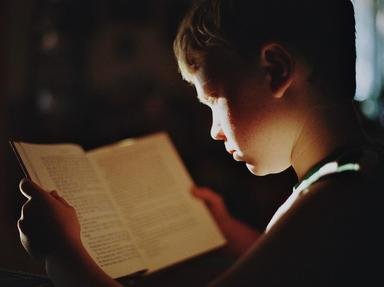Quiz Answer Key and Fun Facts
1. The Nobel Prize for Literature, first awarded in 1901, has added a vast array of literary figures to its list of laureates. In 1998, Portuguese author Josť Saramago won the award; which book is not amongst his works?
2. In 1999, this novel by writer Michael Cunningham followed the lives of three women, one of whom was Virginia Woolf in her final days. It also won the Pulitzer Prize for Fiction. What was the book?
3. In 2002, the committee awarding the Man Booker Prize gave the award to Canadian author Yann Martel, who wrote what book as his sophomore novel?
4. The Hugo Awards are given to books in sci-fi and fantasy modes. Which famous science fiction novel did not receive the award?
5. Although the Nebula Award features many of the same nominations and winners as the Hugo Award (as it follows the same genres) there have been some disparities. What 1966 novel by Daniel Keyes about a lab mouse won the Nebula, but not the Hugo for Best Novel?
6. The Bram Stoker Award highlights achievements in the genre of horror. Which of these novels won the award after its debut in 1987 and was NOT written by Stephen King?
7. Even children's books get awards. What picture book about a fish on a search won the Caldecott Award for its illustrations?
8. What adventurous children's/teen novel about treasure by Louis Sachar won the Newbery Medal for American authors in 1999?
9. The James Beard Foundation Award is given to notable books in the cooking field. Which of these did not win 'Cookbook of the Year' since its inception?
10. Sometimes it's nice just to get picked. After years of success with Oprah Book Club, Oprah Winfrey rebooted her picks with 'Book Club 2.0' in 2012. What book was her debut selection?
Source: Author
kyleisalive
This quiz was reviewed by FunTrivia editor
agony before going online.
Any errors found in FunTrivia content are routinely corrected through our feedback system.
